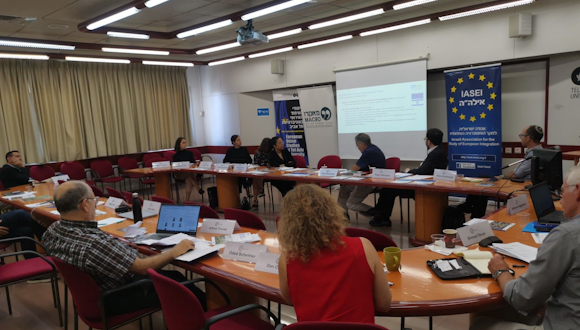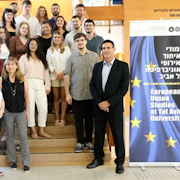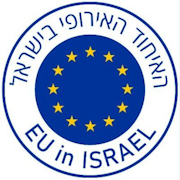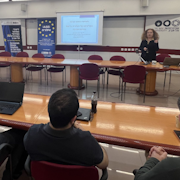IEPN July 2022 online כנס על המהפכה הירוקה והדיגיטלית ביחסי ישראל-אירופה, יולי 2022
Cooperation opportunities between the EU and Israel to advance the green and digital transitions in the Mediterranean
The Mediterranean region is nowadays one of the main climate change hotspots in the world, and its vast negative impacts are already triggering environmental challenges that pose significant risks for natural ecosystems but also to human well-being in both shores of the Mediterranean Sea. Against this background, the European Green Deal presents itself as the EU’s new growth strategy until 2050 that puts environment and climate change at the heart of the EU domestic and external agenda. Specifically, the EU Green Deal has a strong external dimension, which will be key to underpin future financial aid and external cooperation with neighboring regions. In this context, Israel’s vast energetic, natural and biodiversity potential makes the country a key partner to develop and implement sustainable solutions. Building upon this, the recently launched Agenda for the Mediterranean frames the commitment of the European Commission to mobilize up to7 billion euros from the EU budget under the Neighbourhood, Development, and International Cooperation Instrument (NDICI), together with up to 30 billion in guarantee and blending schemes, on external financial aid supporting climate objectives and sustainable development in the region. Excelling in innovation aimed at the provision of solutions for global challenges, the so-called “Start-Up Israeli nation” has nowadays more than 1.200 climate innovation enterprises and start-ups operating in strategic sectors such as sustainable agriculture and water management technologies, clean energy provision, climate-neutral transport, or smart farming. In this context, the Israeli Green tech sector offers an array of cooperation opportunities at all levels between the EU and Israel to advance the joint green and digital transitions, while transiting together to more modern, resource-efficient and competitive economies. For instance, the recently signed EU-Israeli Horizon Europe agreement is intended to boost innovation and research between both parties with the aim of advancing the sustainable development agenda in the next period2021-2027. Moreover, the Israeli case could serve as a successful example to scale up similar joint transformations in the Mediterranean region. However, the clock is ticking for the region to meet climate and environment-related goals of the 2030 Agenda and the Paris Agreement. Countries whose economies depend mainly on oil and gas exports could be severely affected by the shift to cleaner forms of energy in the next years to come. The effects of climate change, combined with demographics, recent conflicts in the region and Europe (Ukraine), as well as subsequent trade disruptions are in disputably putting a strain on energy, water, and food security in the region, which are central to sustainable development. In this panorama, regional cooperation between the EU and Mediterranean countries, in particular with Israel, Egypt and Jordan, is crucial to achieve.





